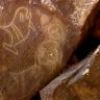 106
106(c) is wrong..
for eg.. x=pi and y=0 satisfy
infact x=n\pi ± y
satisfies
 1
1oh sry misread questn... given 'only'!!
 106
106Q2. √3 btw che: A/2 < 90 deg...
So how can cot() be negative
 1
1oh yeah...din see that....
in a traingle cot\frac{A}{2}+cot\frac{B}{2}+cot\frac{C}{2}=cot\frac{A}{2}cot\frac{B}{2}cot\frac{C}{2}\\
now since cotA/2 cotB/2 cotC/2 r in gp
cot^2(B/2)=cot(A/2)cot(C/2)
so cotA/2 cotB/2 cotC/2=cot3B/2
from AM>=GM
\frac{cot\frac{A}{2}+cot\frac{B}{2}+cot\frac{C}{2}}{3}\geq (cot\frac{A}{2}cot\frac{B}{2}cot\frac{C}{2})^{1/3}\\ \Rightarrow \frac{cot\frac{A}{2}cot\frac{B}{2}cot\frac{C}{2}}{3}\geq cotB/2\\ \Rightarrow \frac{cot^3B/2}{3}\geq cotB/2\\ \Rightarrow cot B/2\geq \sqrt{3}
 1
12- For tABC, cotA/2 +cot B/2 +cotC/2=cotA/2cotB/2cotC/2
nw given
cot2(B/2)=cot(A/2)cot(C/2)
frm above cot(A/2)+cot(B/2)+cot(C/2)=cot3(B/2)
AM≥GM
cot(A/2)+cot(B/2)+cot(C/2)3≥3√cot(A/2)cot(B/2)cot(C/2
or cot3(B/2)3≥cot(B/2)
i.e,cot2(B/2)≥3
or cot(B/2)≥√3
 1
1lmao
@satyajeet i think i posted the same ditto soln above...............
so why u posted it again
this is the nth time that this thing is happening with me....lol
 341
341Q1: is there some pattern to the coefficients? You have 18 and then 816 and last 816 again.
 341
341It is well known that \sin^6 x + 3 \sin^2x \cos^2 x + \cos^6 x=1
Hence we have
\sin^6 x + 3 \sin^2x \cos^2 x + \cos^6 x= \sin^6 x + \sin^2 x \cos^2 y + \cos^6 x
or
3 \sin^2 x(\cos^2 y - \cos^2 x) = (\cos^2x - \cos^2 y)( \cos^4 x + \cos^4 y + \cos^2x \cos^2 y)
Thus either,\cos^2x = \cos^2 y or
3 \sin^2 x+\cos^4 x + \cos^4 y + \cos^2x \cos^2 y = 0
The second cannot happen, so we must have \cos^2x = \cos^2 y which is true iff x = n \pi \pm y
 106
106Q1. yes sir i think so too tht 18 and -816 repeat ...alternatively
(but that wsa the exact question .. so cannot confirm for sure)
 11
11Ans 5) For θ belonging to (0 , ∩/2) , θ > sin θ .............(i)
Now, replace θ by cosθ, we get
cos θ > sin (cosθ) ....................(ii)
Since cosθ is dec for (0 , ∩/2) ,
as θ1 < θ2
cos θ1 > cos θ2 for θ belonging to (0 , ∩/2)
Therefore, taking cos on both sides of (i), we get
cos θ < cos (sinθ) .......................(iii)
Frm (ii) and (iii),
cos (sinθ) > cosθ > sin (cosθ)
Thus, cos (sinθ) > sin (cosθ)
 341
341Q3) We use the identity \tan x \tan (60^{\circ} - x) \tan (60^{\circ} + x)= \tan 3x
Then \tan 4^{\circ} \tan 56^{\circ} \tan 48^{\circ} \tan 64^{\circ} \tan 72^{\circ} = (\tan 4^{\circ} \tan 56^{\circ}\tan 64^{\circ}) \tan 48^{\circ} \tan 72^{\circ}
=\tan 12^{\circ} \tan 48^{\circ} \tan 72^{\circ} = \tan 36^{\circ}<\tan 45^{\circ} =1
 341
341Q 5) We know that \cos \theta + \sin \theta < \frac{\pi}{2}
Also, \theta_1, \theta_2 \in \left[0,\frac{\pi}{2} \right] \Rightarrow \sin \theta_1 < \sin\theta_2
Hence \cos \theta < \frac{\pi}{2} - \sin \theta \Rightarrow \sin (\cos \theta) < \sin \left(\frac{\pi}{2} - \sin \theta \right) = \cos ( \sin \theta)
 106
106yeah thanks sir,...
Q1. solved by me.... no need to reply for that :)